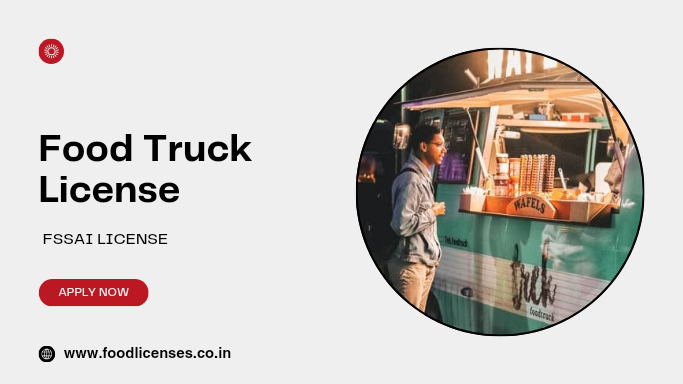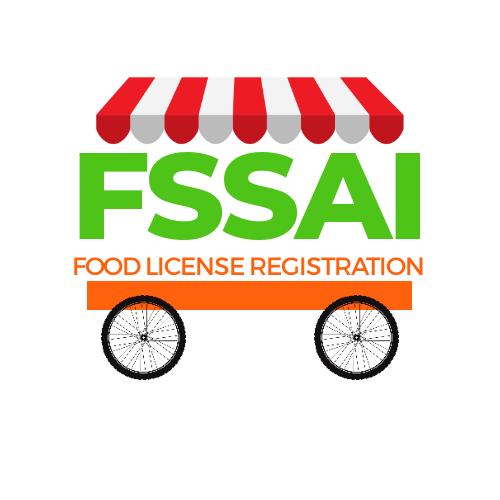Food Truck License: A Complete Guide
Are you passionate about food and dream of starting your own business? A food truck could be an excellent opportunity to showcase your culinary skills and reach a wider audience. However, before hitting the streets with your delectable creations, it’s essential to understand the legal requirements and obtain the necessary licenses. In this guide, we’ll explore everything you need to know about obtaining a food truck license in India, including the registration process, legal formalities, and frequently asked questions.

1. Understanding Food Truck License
A food truck license is a legal permit that allows you to operate a mobile food service business. It ensures that your food truck complies with health and safety regulations and meets the necessary standards for food preparation and service.
2. Registration Process
To obtain a food truck license, follow these steps:
- Business Registration: Register your food truck business as a sole proprietorship, partnership, or private limited company, depending on your preference and business goals.
- Apply for FSSAI License: Obtain a Food Safety and Standards Authority of India (FSSAI) license, which is mandatory for all food businesses, including food trucks. You can apply for the license online through our website.
- Local Municipality Approval: Obtain approval from the local municipality or civic authority to operate your food truck in specific locations. You may need to submit your business plan, vehicle details, and proposed operating areas for approval.
- Health Department Clearance: Ensure compliance with health and safety regulations by obtaining clearance from the local health department. This may involve inspections of your food truck’s kitchen facilities and hygiene practices.
- Vehicle Registration: Register your food truck with the Regional Transport Office (RTO) to obtain a vehicle registration certificate. Ensure that your food truck meets the required specifications and safety standards set by the RTO.
3. Legal Formalities
- Food Safety Standards: Adhere to food safety standards and hygiene practices outlined by the FSSAI. Maintain cleanliness in your food truck kitchen and ensure proper storage and handling of food ingredients.
- Tax Registration: Register for Goods and Services Tax (GST) if your annual turnover exceeds the threshold limit specified by the GST authorities. Obtain a GST identification number (GSTIN) and comply with GST filing requirements.
- Permits and Licenses: Obtain necessary permits and licenses, such as fire safety clearance, trade license, and NOC from the fire department, local police, and municipal corporation, respectively.
Frequently Asked Questions (FAQs)
- Do I need a separate license for each location where I operate my food truck?
- Yes, you may need to obtain permits or approvals from the local authorities for each operating location, especially if you plan to operate in multiple cities or states.
- Can I prepare and store food in my home kitchen for my food truck?
- No, food preparation for commercial purposes must be done in a licensed commercial kitchen that meets FSSAI standards.
- What safety measures should I implement to ensure food quality and hygiene in my food truck?
- Implement strict hygiene practices, including regular cleaning and sanitization of food preparation surfaces, utensils, and equipment. Use fresh, high-quality ingredients and maintain proper temperature control during food storage and transport.
- Do I need a separate license for alcoholic beverage sales on my food truck?
- Yes, if you plan to serve alcoholic beverages on your food truck, you’ll need to obtain additional licenses and permits from the relevant authorities, such as the excise department.
- Are there restrictions on the types of food I can sell from my food truck?
- While there are no specific restrictions on the types of food you can sell, ensure that your menu offerings comply with food safety regulations and dietary requirements. Avoid selling potentially hazardous foods that require extensive cooking or refrigeration.
- What are the insurance requirements for a food truck business?
- It’s advisable to have insurance coverage for your food truck, including liability insurance, vehicle insurance, and insurance for equipment and inventory. Consult with an insurance agent to determine the appropriate coverage for your business.
- How can I attract customers to my food truck?
- Use creative marketing strategies such as social media promotions, food festivals, and collaborations with local events or businesses to attract customers. Offer unique menu items, discounts, and loyalty programs to encourage repeat business.
- Do I need to renew my food truck license periodically?
- Yes, food truck licenses, permits, and certifications may need to be renewed annually or periodically, depending on the regulations of the respective authorities.
- Can I operate my food truck in residential areas?
- Operating a food truck in residential areas may be subject to zoning regulations and local ordinances. Obtain necessary approvals from the local municipality or civic authority before setting up your food truck in residential neighborhoods.
- What are the startup costs associated with launching a food truck business?
- Startup costs for a food truck business include vehicle purchase or lease, kitchen equipment, licenses and permits, inventory, marketing expenses, and working capital for initial operations. The total investment varies depending on the scale and scope of your business.
Conclusion
Starting a food truck business can be an exciting and rewarding venture, but it requires careful planning and compliance with legal requirements. By understanding the registration process, legal formalities, and best practices for operating a food truck, you can set yourself up for success in the competitive food industry. Whether you’re serving gourmet cuisine or comfort classics, a well-run food truck can delight customers and build a loyal following wherever you roam.

